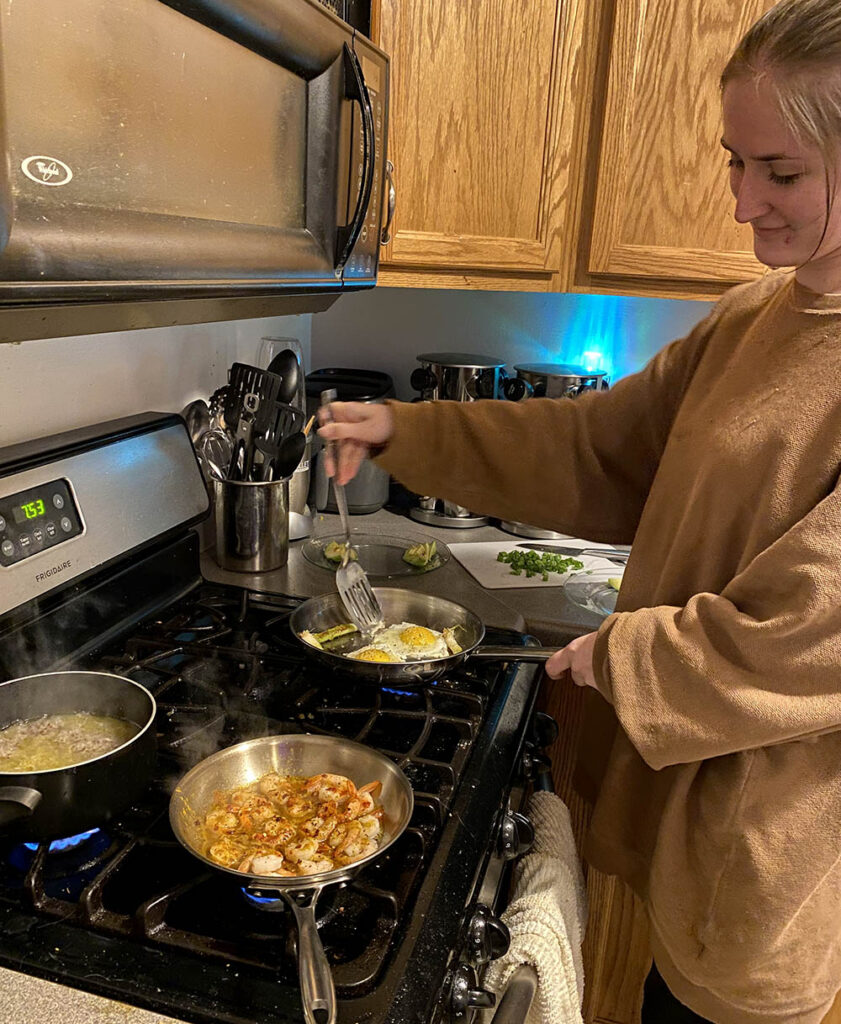Triple Academic Success
- Rachelle Garbarine
- Apr 19, 2023
- 3 min read
Updated: Aug 25, 2023
Driven may be the first word that comes to mind when describing NC State senior Jordan Birkner.
The reason is simple. When she graduates this fall she will earn three separate bachelor’s degrees, two minors and an undergraduate certificate. She also has a long list of accomplishments outside the classroom, from holding three jobs and conducting research to attending conferences, participating in clubs and volunteering at organizations.
By any measure, Birkner’s academic odyssey is impressive. However, for someone who was diagnosed with attention-deficit/hyperactivity disorder and autism spectrum disorder while in college, it is even more noteworthy.
Also significant is Birkner’s plan to use her triple degrees for a career as a neuropsychology researcher and advocate for people struggling with mental and behavioral health issues.
While Birkner has much to brag about, you won’t hear the Greensboro native and self-described introvert sing her own praises.
Birkner didn’t come to NC State intent on earning multiple degrees. Instead, she came with a passion for research and a specific career goal: revise how mental and behavioral health disorders are diagnosed and their treatment is determined.

Birkner shares a moment with philosophy professor Gary Comstock, her mentor.
By designing her course of study around both, Birkner’s college path morphed into pursuing three degrees. They are in psychology, biology, and biological impacts on neuropsychology, with a concentration in genetics (the latter a self-designed degree through the Department of Interdisciplinary Studies). Her minors are in genetics, and health, medicine and human values — and her certificate is in essentials of business. She also plans to apply directly to a doctoral program in neuropsychology.
“Everything I have chosen to do in my time at NC State reflects my passions and goals,” she says.
And her motivation is personal.
Birkner says her mental health journey and struggles with socializing and focus started in middle school. Through those years, she also had to wrestle with the negative side effects of the medication she was prescribed.
“I don’t want other people to experience the same thing I did,” she explains.
What’s helping Birkner achieve multiple degrees is that she started college with 29 credits, thanks to Advanced Placement classes she took in high school. She has also taken college classes every summer; this summer is no exception.
Doing so has enabled Birkner “to spread out my courses and take between 13-16 credits per semester, which is fairly standard,” she notes.
Still, she must squeeze in time for her research. She is co-developing a paper on autism and identity from a philosophical perspective with philosophy professor Gary Comstock, her mentor.
Then there are her three jobs. She works as a cook at Case Dining Hall, a writer for Technician, an NC State student newspaper, and a behavioral technician for the Autism Society of North Carolina and alternate chair of its Quality Improvement Committee.
To accomplish it all, Birkner is extending her time at NC State to 4.5 years.
But how is she staying on track, handling the workload, and avoiding burnout? “There are not enough hours in the day to manage everything I have on my plate, “ Birkner says and adds, so sometimes you need to prioritize tasks.
She also credits the flexibility NC State has afforded her in choosing classes and self-designing her degree in neuropsychology to match her academic interests. That flexibility has enabled her to link her interests and experiences to her assignments and research projects across classes and semesters.

Birkner enjoys cooking as a way to channel artistic expression and reduce stress.
As for reducing stress, “artistic expression is vital,” she says, adding, “I cook nearly every meal as a way to channel this, and I love to listen to podcasts while I work or watch B movies and play games with my roommates.”
Additionally, she has taken advantage of some of the services and resources NC State offers for mental health and academic support. For instance, the supplemental instruction offered in one of her classes “provided a more personal environment to ask questions, which was extremely helpful,” she says.
Topping Birkner’s list, however, are the NC State professors (professor Comstock and Sociology and Anthropology professor Jim Yocom, among them) who “created productive and thought-provoking environments for learning,” she says. Their classes helped her develop “visual methods of critical thinking” and augment her sense of accountability and discipline, she adds.
It is taking Birkner some long days and plenty of drive and determination to follow her passions and goals. And she encourages others to chase their dreams.
What’s Birkner’s biggest takeaway for others? If you’re determined to do something, you can accomplish it, she says and adds, “Ask if you can do it; see if it is possible because you won’t know unless you ask.”

Comments